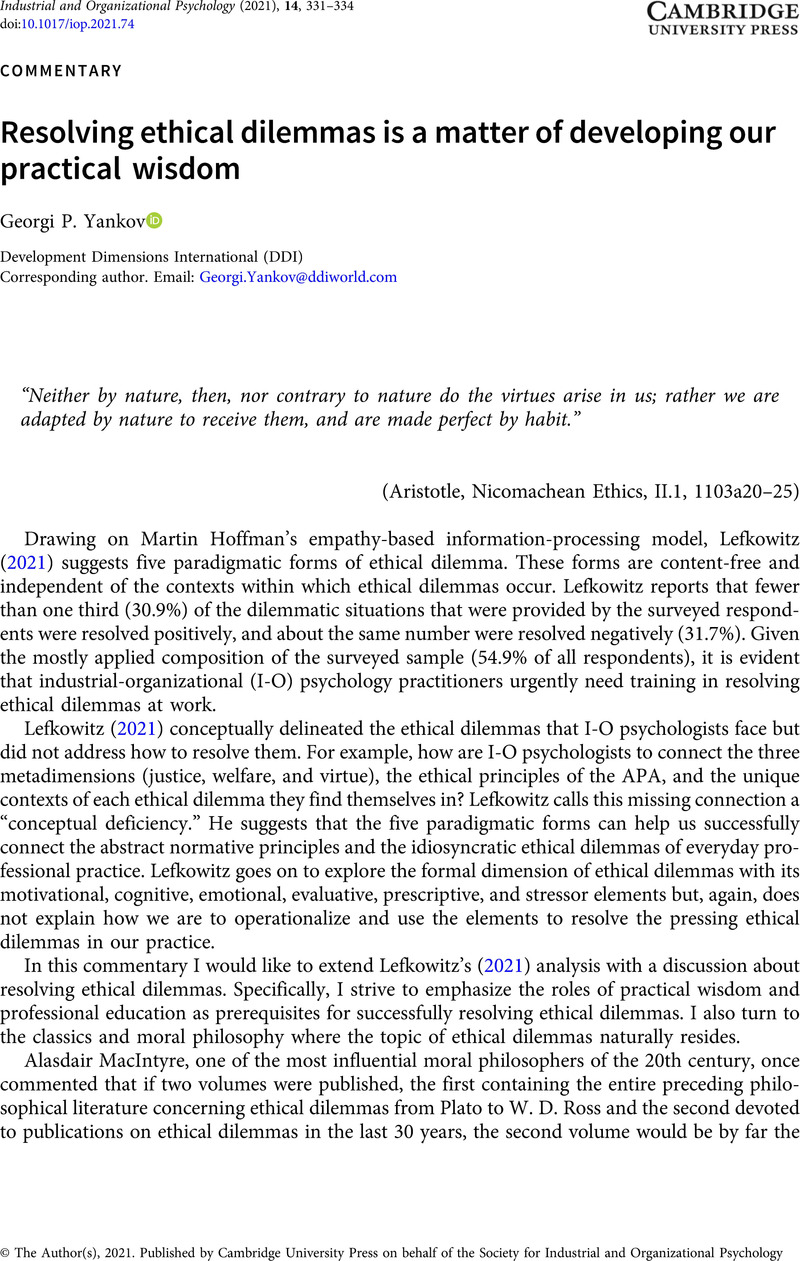Crossref Citations
This article has been cited by the following publications. This list is generated based on data provided by Crossref.
Ireland, Shawn
2024.
Applied Psychology in the Modern Era.
p.
87.



